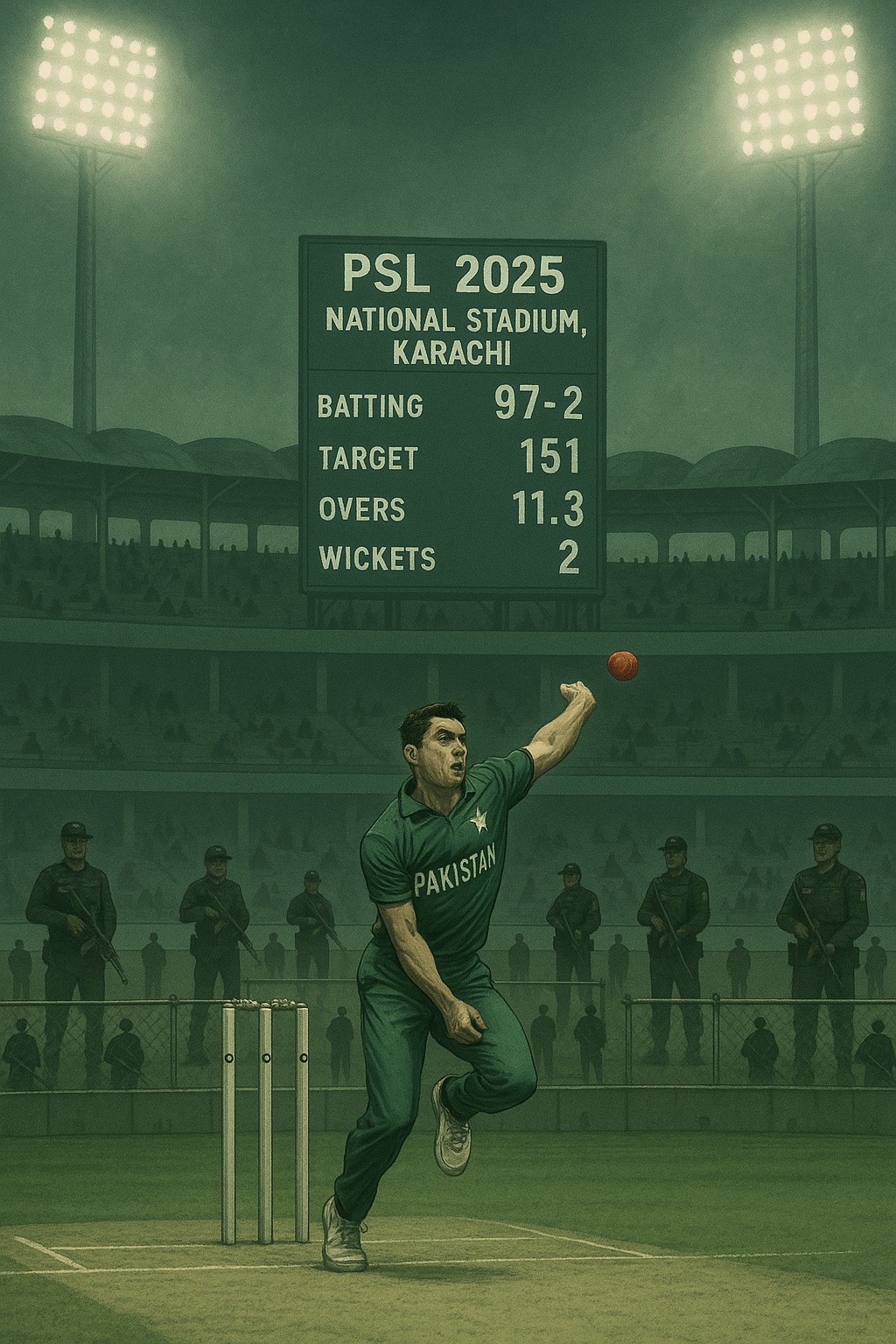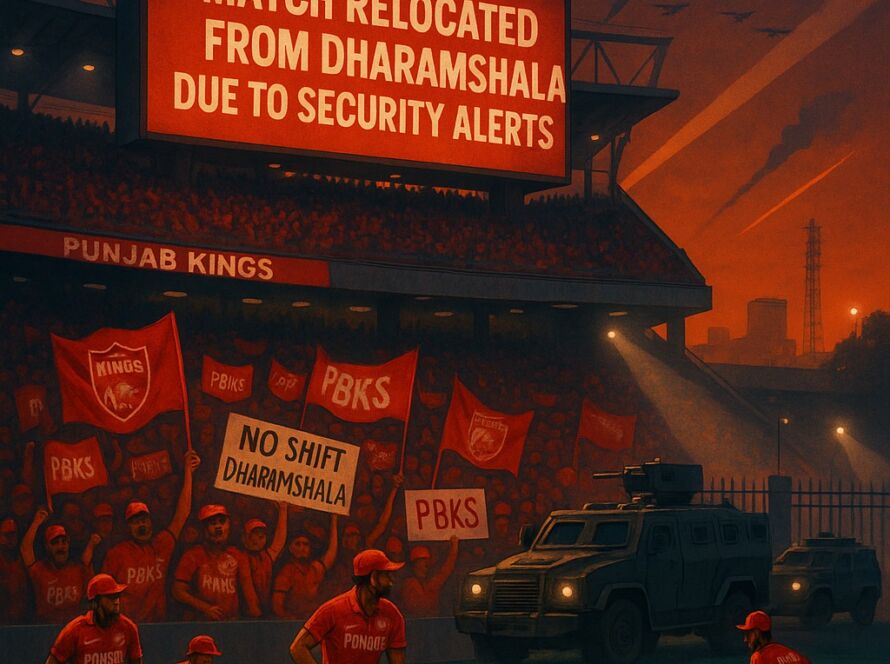PSL 2025 faces player exodus after a wave of England players exited the tournament citing serious security concerns. The aftermath of the high-profile anti-terror operation dubbed “Operation Sindoor” has reshaped the landscape of Pakistan’s most prestigious cricket league. With multiple international players withdrawing and uncertainty looming, the Pakistan Super League finds itself battling to maintain momentum and credibility amid unprecedented turmoil.
This article explores what triggered this crisis, its impact on the league, and how teams and fans are coping with the sudden vacuum left by departing stars.
Operation Sindoor: The Triggering Event
The seeds of disruption were sown when Indian and Pakistani intelligence services jointly confirmed a heightened cross-border threat scenario. This prompted Pakistan to launch Operation Sindoor, an intensive internal crackdown to dismantle militant sleeper cells suspected of plotting large-scale disruptions.
While the operation was widely praised for its effectiveness, it had unintended consequences for public events, particularly the Pakistan Super League. Several cities, including Karachi and Lahore—traditional PSL strongholds—were flagged as zones requiring elevated security.
Foreign players, particularly from England, began re-evaluating their participation. Despite the Pakistan Cricket Board’s (PCB) assurances, a visible sense of unease grew.
England Stars Lead the Exodus
The domino effect began when England’s white-ball regular Liam Livingstone announced his immediate withdrawal from PSL 2025, citing personal safety. Soon after, fellow compatriots Sam Billings, Will Jacks, and Reece Topley followed suit.
Privately, these players PSL 2025 Faces Player had been in communication with the England and Wales Cricket Board (ECB), which reportedly advised “individual risk assessments.” Although the ECB did not issue a blanket pullout, it respected the players’ decisions.
As of now, over six England players have exited the PSL, with others said to be reconsidering their stance. This trend has caused anxiety among franchises and fans alike.
PCB’s Response: Reassurance and Damage Control
The Pakistan Cricket Board moved quickly to control the narrative. In a press conference, PCB Chairman Mohsin Naqvi emphasized that security protocols were “exceptionally high” and internationally approved.
He added, “We understand player concerns, but we urge them to consider the broader context. No credible threat has targeted the PSL directly.”
To replace the departing stars, the PCB has fast-tracked talks with players from South Africa, Sri Lanka, and Afghanistan. They also began reaching out to unsold talent from the recent drafts.
Despite efforts, filling the shoes of high-profile players like Livingstone and Topley won’t be easy.
Impact on Teams: Scrambling for Replacements
Franchises affected the most include:
- Karachi Kings, who lost both Topley and Jacks.
- Peshawar Zalmi, who had drafted Billings for wicketkeeping duties.
- Islamabad United, now missing Livingstone in the middle order.
These teams have had to revisit their strategies overnight. Scouting reports are being rewritten. Coaches are analyzing available replacements who can gel quickly and perform under pressure.
With the tournament already underway, integrating new players poses logistical and tactical challenges. Unlike the IPL, PSL franchises don’t have the same financial muscle to fly in marquee names at short notice.
Fan Reactions: Shock and Frustration
Fans across Pakistan have reacted with a mix of empathy and disappointment. Social media platforms have been flooded with messages directed at departing players, with hashtags like #PSLExodus and #SindoorImpact trending.
While many fans understand the security concerns, others feel let down. Some pointed to the successful and secure conduct of past PSL editions, including those held entirely in Pakistan.
One Twitter user wrote, “We gave them love and stadiums full of cheers, and they leave when we need unity the most.”
This emotional backlash highlights the deep connection between Pakistani fans and international cricket.
Security and Cricket: An Unstable Relationship
Security concerns have haunted cricket in Pakistan for over a decade. The 2009 attack on the Sri Lankan team bus in Lahore cast a long shadow. Since then, the PCB has made significant progress restoring international cricket within its borders.
PSL became a symbol of that revival. Hosting matches across cities, involving top-tier foreign players, and drawing sold-out crowds was a testament to Pakistan’s resurgence.
Operation Sindoor, however, has stirred old fears. Despite no direct threats to players, the perception of vulnerability has returned.
For many international players, perception often weighs heavier than reality.
Media and Political Reactions For PSL 2025 Faces Player
The international cricketing community has closely monitored the situation. British media outlets framed the exits as precautionary, while Pakistani media adopted a more critical tone, highlighting double standards.
Former cricketer and commentator Ramiz Raja said, “This sends a wrong signal. If PSL can’t retain players intense moments, it hurts our credibility.”
Meanwhile, government officials reiterated that PSL remains secure, with special forces deployed to all venues. Some hinted that certain foreign lobbies might be “exaggerating threats” to isolate Pakistan cricket.
Economic Ramifications
The player exodus could affect PSL’s sponsorship and broadcasting deals. Advertisers and broadcasters bank on star power to drive engagement and revenue. The departure of England players could hurt English-language viewership and digital metrics.
Moreover, franchises that invested heavily in these players now face potential financial setbacks. Refunds for unavailable players reduced merchandising opportunities, and ticket sales may all take a hit.
The PCB is exploring options to legally protect franchises from contract breaches and mitigate financial losses.
Leadership Voices: Standing Strong
Despite the chaos, PSL’s local stars have stepped up. Babar Azam, Shaheen Afridi, and Shadab Khan have all publicly voiced support for continuing the league uninterrupted.
Babar tweeted, “PSL is our pride. Let’s keep the game alive and safe for everyone involved.”
These voices matter. They instill confidence and reinforce the belief that Pakistan cricket will weather this storm—just as it has many times before.
The Way Forward: Strategic Solutions for PSL 2025 Faces Player
To address the current crisis and prevent future ones, PSL organizers and PCB must adopt several strategies:
- Real-time risk assessment tools: Partner with global security firms to provide player-specific assessments.
- Transparent communication: Engage players and their boards with constant updates.
- Insurance enhancements: Expand personal safety and contract insurance clauses to cover such scenarios.
- Psychological support: Offer mental health resources to help players manage anxiety during tense periods.
- Diverse recruitment: Build deeper foreign talent pools to reduce dependency on players from a single country.
Conclusion: Resilience Amid Uncertainty
The fact that PSL 2025 faces player exodus is a tough blow, but not an insurmountable one. Pakistan cricket has shown remarkable resilience over the years. While Operation Sindoor has rattled the ecosystem, the response from PCB, local players, and most fans has been one of unity and resolve.
It’s a reminder that cricket, especially in the subcontinent, is more than a game. It’s about identity, hope, and pride.
With new players stepping in, local talent rising, and stadiums still buzzing, the PSL story continues—perhaps even stronger for having faced adversity head-on.



